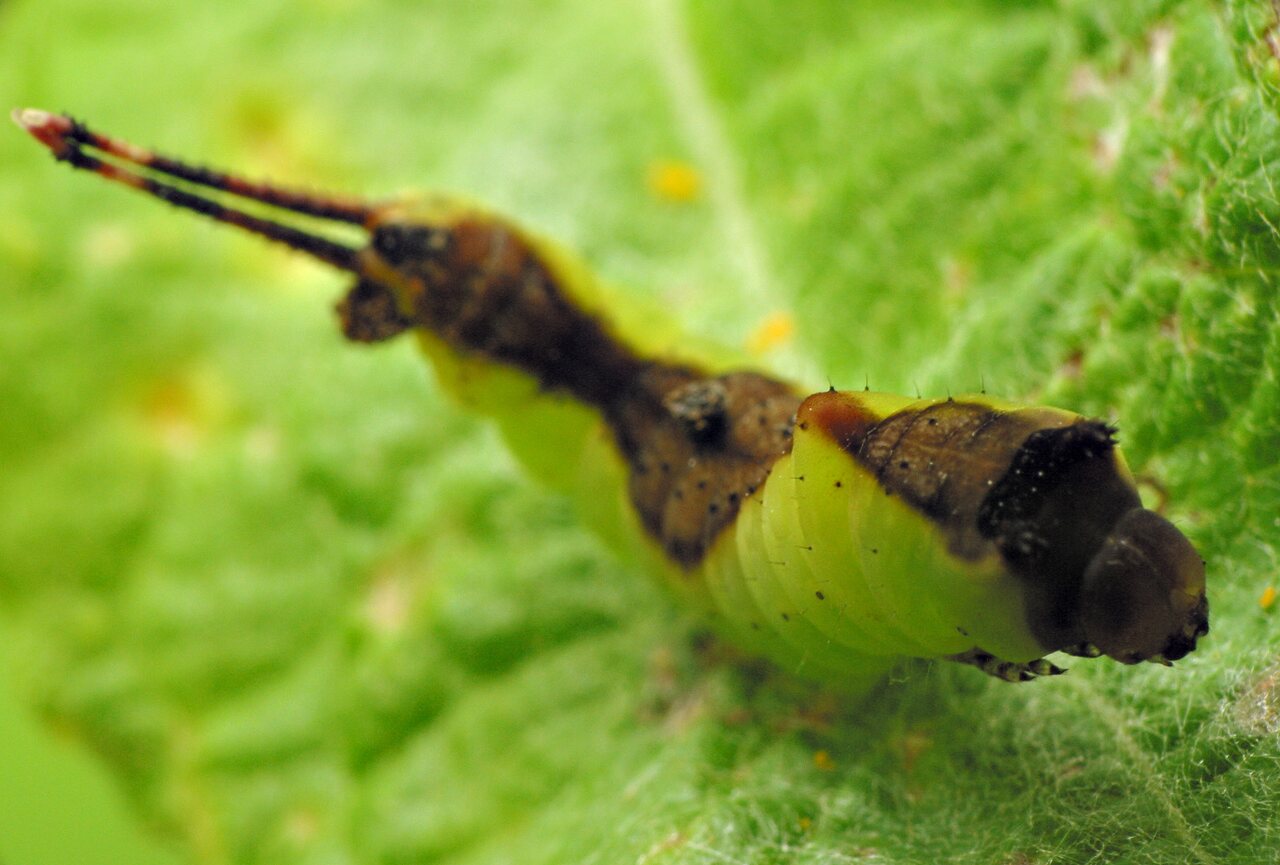
Cerura vinula caterpillar, third instar · didysis dviuodegis, vikšras, trečia stadija
- puss moth
- Großer Gabelschwanz
- didysis dviuodegis
- pelēkā dakšaste
- widłogonka siwica
https://en.wikipedia.org/wiki/Cerura_vinula The flight period extends from April to August, on location, with one generation per year. Host plants include willow and poplar, especially the aspen, Populus tremula. Females lay their chocolate-brown, 1.5 millimetres wide, hemispherical eggs on the upper side of the leaves of their food plants. The moth survives the winter as a pupa in a very solid wood-reinforced cocoon, usually attached to vegetation.
The caterpillars have a remarkable defensive behavior. When disturbed, they strike a defensive pose raising the head with a reddish area and waving the twin tails with pinkish extendable flagellae. They might squirt formic acid at the attacker if the defense warning is unheeded.
Skraido gegužės – liepos mėn. pamiškėse, krūmynuose, pakelėse, vandens telkinių pakrantėse. Vikšras žalias, jo galva ruda ir su tamsia trikampe dėme baltais apvadais. Vikšras minta drebulių, tuopų, gluosnių lapais. Lėliukė tamsios spalvos. Lietuvoje drugys dažnas.
‥
0 comments
Add a comment